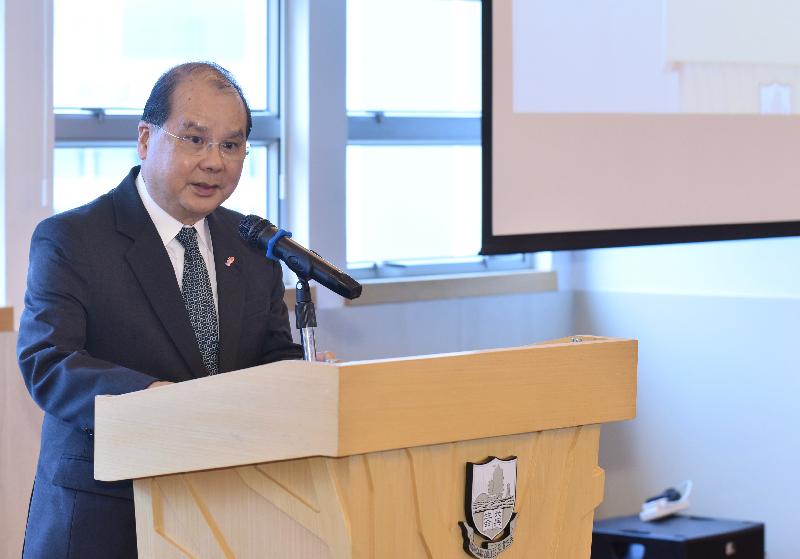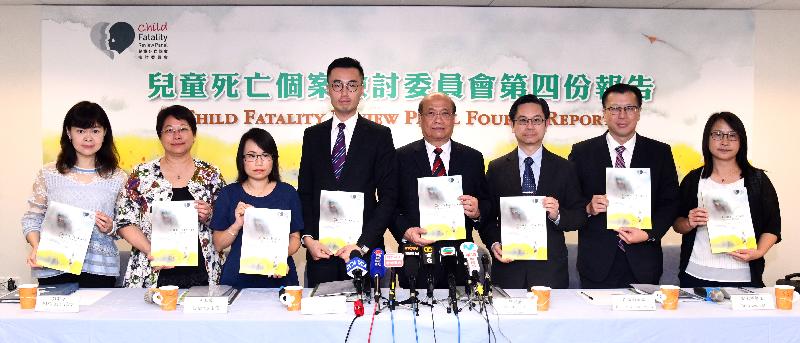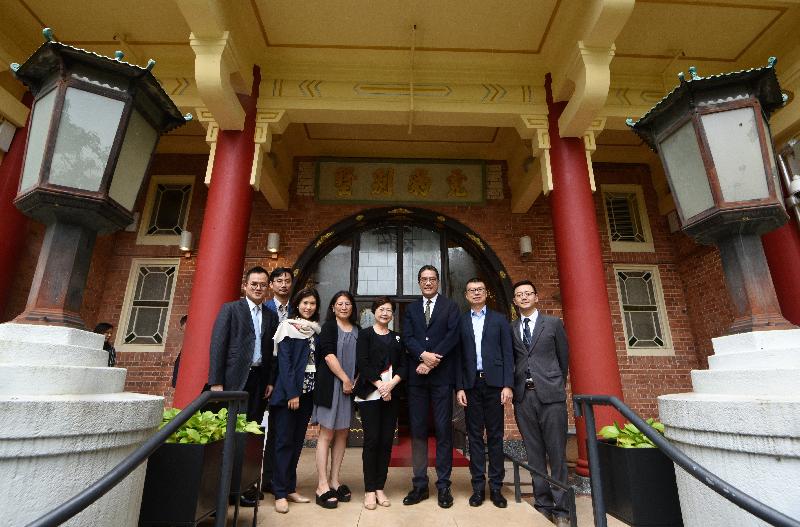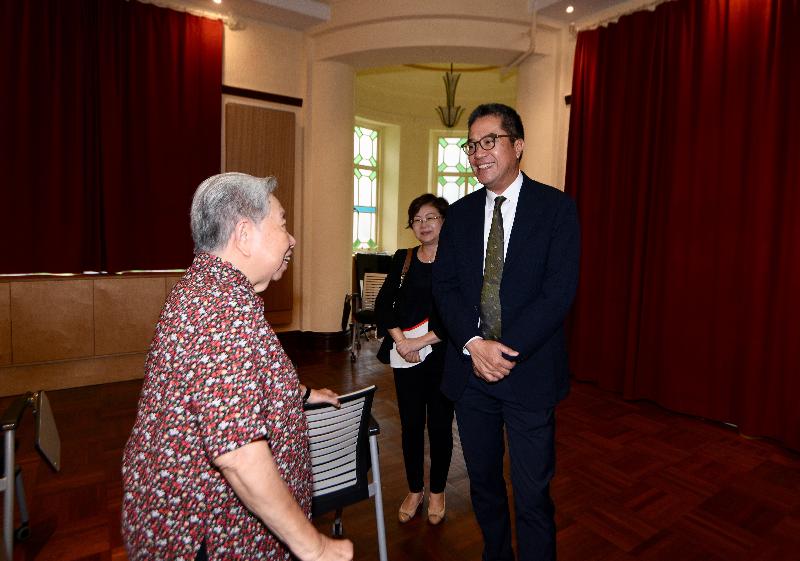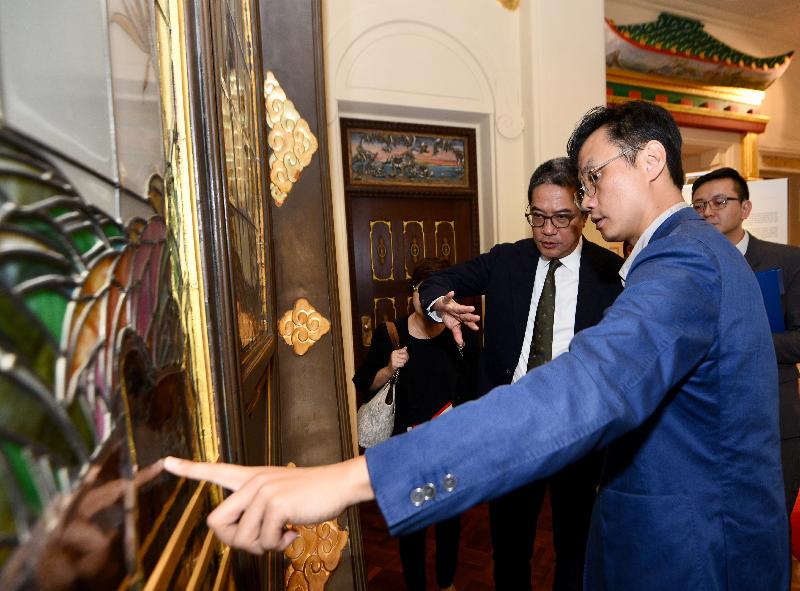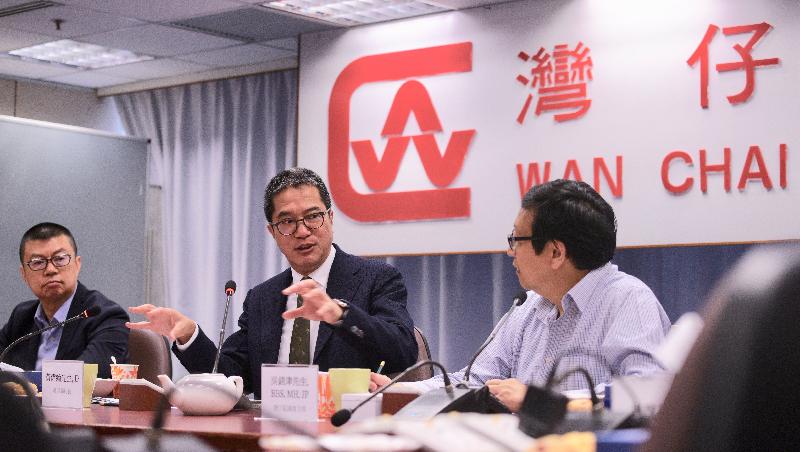Following is the speech by the Chief Secretary for Administration, Mr Matthew Cheung Kin-chung, at Munsang College Topping-out Ceremony for its newly developed teaching complex today (May 31):
Dr Daniel Yung (Chairman, Munsang Education Council), Ms Lily Wong (Chairperson, Munsang College Foundation), Dr Alice Yuk (School Supervisor, Munsang College), Ir Gary Ko (Convener of Building Sub-committee, Comprehensive Roadmap of Strategic Succession, Munsang College), distinguished guests, principals, teachers, parents and students,
Good afternoon. I am most delighted and honoured to join you all here this afternoon to celebrate the structural completion of the new teaching complex of Munsang’s Kowloon campus.
This topping-out ceremony marks a key milestone in the continuous development of Munsang College, Munsang College Primary School and Munsang College Kindergarten. It also demonstrates clearly the dedicated commitment of the school management in providing quality education in Hong Kong.
Founded in the year 1926, Munsang College began with the operation of just one class at each junior secondary level. Expansion followed with the setting up of the primary and kindergarten sections in the year 1927 and the senior secondary section in 1928. With the strong professionalism, dedication and visionary leadership of the management, the schools have become one of the leading education bodies in Hong Kong, currently accommodating a total of about 3 500 students.
Guided by the mottoes of “Light and Life” and “All For One, One For All”, the Munsang schools have earned an enviable reputation of offering a high quality, rigorous academic programme in a caring environment. Since their establishment nearly a century ago, the schools have nurtured generations of prominent leaders who serve the community with remarkable achievements across all sectors of the community.
Our young people are the pillar of Hong Kong’s future, they are our hopes as well. Education therefore plays a crucial role in unleashing and realising their potential. The current-term Hong Kong Special Administrative Region Government is totally committed to investing in education. In its first year after inauguration in the year 2017, the Government increased by $3.6 billion recurrent resources to introduce a package of measures to increase additional manpower, funding and hardware to improve our quality of education. Last year, another $2 billion of recurrent funding was allocated to further enhance teacher development, kindergarten, and integrated as well as life-wide learning. In parallel, the Quality Education Fund also set aside $3 billion for school-based curriculum development, student support measures and other improvement initiative.
This year, the total expenditure on education will increase remarkably to $124 billion, representing a surge of 12 per cent growth over last year. Of this, the recurrent expenditure on education will increase to $90.6 billion, representing a 6 per cent growth. Over the past 10 years, recurrent expenditure on education has increased by 77 per cent, with an average growth rate of 6.6 per cent per year. This massive investment in education fully demonstrates the Hong Kong Government’s commitment in nurturing talent for the long-term development of Hong Kong.
I always give this example in my speeches: for every $100 we spend every day, roughly $21 goes to education, $19.70 goes to social welfare, and $17.50 goes to medical services. So in other words, education, welfare and medical services in that order – and this has been almost number one, the lion’s share of government spending all along. This is very simple. Hong Kong has no resources, except our people. Investing in human capital is the only way we keep Hong Kong going. If we don’t invest in our own young people, Hong Kong has absolutely no future at all. So education is a very, very important policy area. It’s an important investment for Hong Kong in the future. While the Government plays an active role in promoting quality education, success in education requires the collaborative efforts of all who care about our next generation. Munsang College, and Munsang School as well, have all along been our close partners in promoting whole-person education for our next generation, with the aim of nurturing them into quality citizens who are socially responsible and equipped with a love for Hong Kong, a sense of national identity, and of course an international outlook.
Ladies and gentlemen, the completion of this 7-storey new teaching complex ties in well with the Government’s latest new initiative in enhancing the support to schools in widening students’ learning experiences. Indeed, education is founded on dedication, passion and commitment. The Munsang schools have been a shining example in cultivating our future generations for Hong Kong and neighbouring regions.
I trust that the Munsang schools will continue their excellent work and make full use of all these new state-of-the-art facilities to accomplish their mission of developing students as self-motivated, resolute and devoted individuals with the spirit of “Light and Life”. On this encouragement note, I wish the schools continuous success in the many years ahead and all of you good health, every happiness and every success. Thank you very much.
